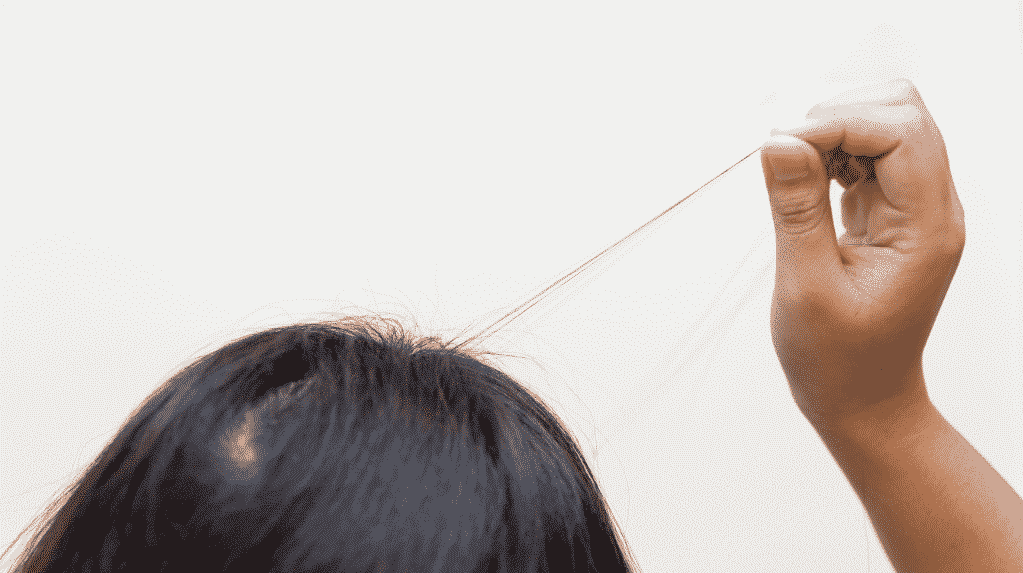People with trichotillomania often feel ashamed of their hair-pulling and may try to hide it by wearing hats, wigs, or make-up. They can also suffer physical and emotional complications from it, including damage to their scalp, skin, or hair follicles and problems with eating (trichophagia).
The primary treatment is habit reversal training, in which you learn to substitute other habits, like clenching your fists when you feel the urge to pull. You may also try other forms of therapy, such as cognitive therapy, to change the beliefs that cause your hair-pulling behavior.
What is trichotillomania?
Trichotillomania (TRI-koh-till-OM-a-nee) is a mental health condition in which you have an uncontrollable urge to pull out your hair. It results in bald spots and can cause distress, shame, and embarrassment. It affects both children and adults, but most often develops during adolescence. People often try to hide their hair pulling, but help is available.
Usually, you pull out hair with your fingers, but you can also use tweezers and other tools. You may feel a compulsion to pull out your hair when stressed or anxious; sometimes, it happens without any triggers. The behavior is compulsive and can be hard to stop.
To help you develop more healthy coping mechanisms for stress and anxiety, your physician or therapist will use cognitive therapy and habit reversal training to treat the symptoms. Some helpful distractions include exercise, playing with a pet, repeating a mantra, or fidgeting with a stress ball. For additional details on trichotillomania and its therapies, go to https://www.kairoswellnesscollective.com/trichotillomania.
Symptoms
People with trichotillomania often pull their hair in response to negative emotions like anxiety or stress. They may also feel certain sensations, such as itchiness or tingling, before pulling their hair. Over time, this repetition causes the brain to link the sensations with the act of pulling, so they become more intense.
Trichotillomania often co-occurs with other body-focused repetitive behaviors like nail biting and skin picking. Others report feeling ashamed or embarrassed about their pulling and hair loss, which can lead to problems at school, work, or in relationships. They might avoid social situations or wear wigs or false eyelashes to hide their hair loss.
About half of people with trichotillomania put the hair they pull in their mouth somehow, and about 1 in 5 swallow or eat it (trichophagia). Swallowing hair can cause digestive system problems, including stomachaches, vomiting, or blockages caused by clumps of undigested hair called trichobezoars.
Diagnosis
Symptoms of trichotillomania may start at any age but usually appear around puberty. Between 1% to 4% of the population is affected by this condition, with women being twice as likely to be affected as men. People with trichotillomania often feel tension that builds and needs to be relieved by pulling out their hair. They may even experience pleasure or a sense of satisfaction after they pull their hair out, which makes the behavior more addictive.
Many people with trichotillomania also have other body-focused repetitive behaviors like nail biting or skin picking. Some people with trichotillomania have a related condition called trichophagia, which is the habit of swallowing or eating the hair they pull. It can cause digestive problems like stomachaches, vomiting, nausea, and blockages.
A mental health professional can diagnose trichotillomania by talking to you and doing a physical examination. They can assist you in learning effective coping mechanisms for your symptoms and identifying treatments that work best for you. Effective treatment for trichotillomania involves:
- Cognitive therapy to recognize and monitor hair-pulling habits.
- Practicing coping skills.
- Learning healthy ways to deal with stress and anxiety.
- Reframing thoughts about the disorder.
Treatment
Aside from medication, therapy also proves to be beneficial for individuals with trichotillomania. A therapist can help you understand the triggers for your pulling and provide tools to overcome them. Cognitive behavioral therapies that have shown efficacy with trichotillomania include habit reversal training and stimulus control.
Trichotillomania’s causes are unclear, but genetics and environment may play a role. It tends to develop before or during the early teens and often continues throughout a person’s life. It’s more common in women and may run in families.
People with trichotillomania find that pulling their hair can be addictive, and they have difficulty stopping. It can lead to significant anxiety and embarrassment, especially if the behavior is apparent. They may feel ashamed and avoid social interactions or wear hats or wigs to hide bald spots. The condition can cause people to miss out on career and family opportunities, and many feel depressed or isolated as a result of it.


